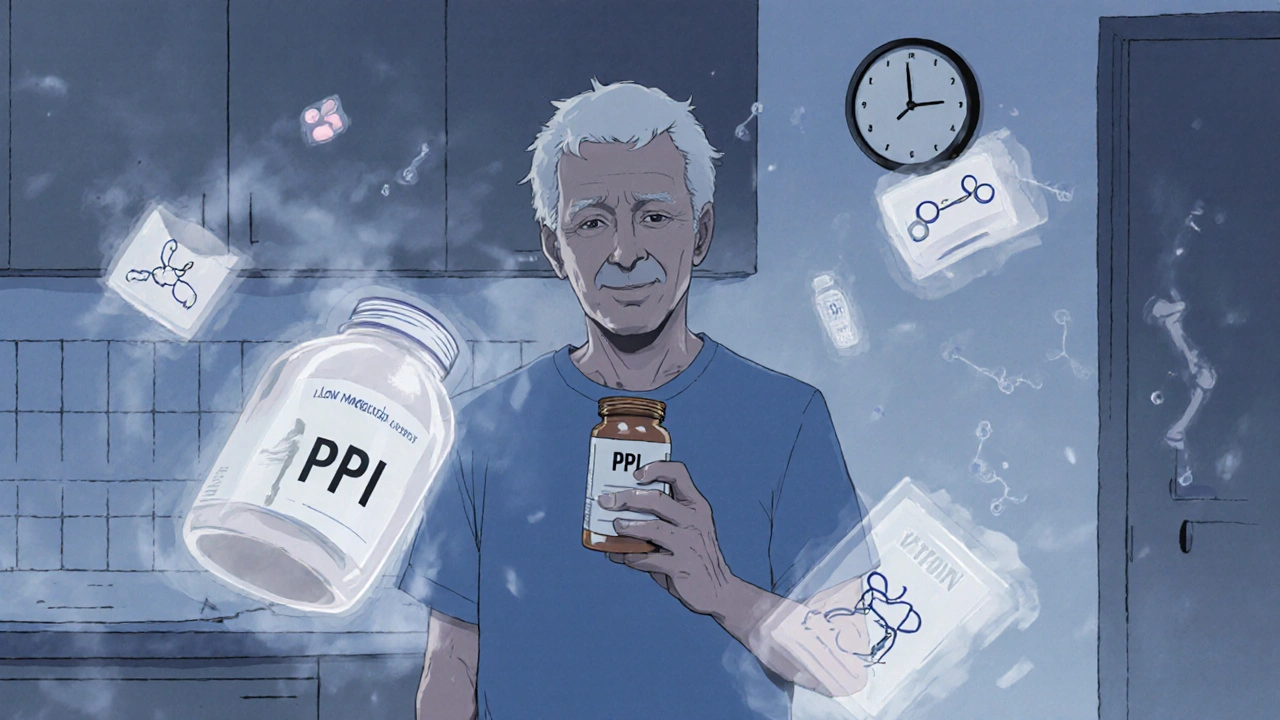Long-Term PPI Use: Risks, Alternatives, and What You Need to Know
When you take proton pump inhibitors, a class of drugs that reduce stomach acid production, commonly prescribed for acid reflux and ulcers. Also known as PPIs, they’re among the most prescribed medications worldwide — but using them for years can quietly damage your health. Many people start PPIs for short-term relief, then keep taking them because they feel better — but stopping isn’t always easy, and the side effects build up over time.
Long-term PPI use is linked to bone density loss, a condition where bones become fragile and break more easily, often without warning. Studies show people on daily PPIs for more than a year have a higher risk of hip, wrist, and spine fractures. Why? Because these drugs block acid needed to absorb calcium, magnesium, and vitamin B12 — nutrients your bones and nerves rely on. It’s not just about osteoporosis, either. Low magnesium can cause irregular heartbeats, and low B12 can lead to nerve damage that feels like tingling or numbness in your hands and feet.
Then there’s the gut. PPIs change your stomach’s natural acidity, which normally kills harmful bacteria. That opens the door to infections like C. diff — a serious, sometimes deadly diarrhea-causing bug. And over time, your body can start relying on the drug. When you try to quit, acid production rebounds hard, making you feel worse than before. This isn’t a myth — it’s called rebound acid hypersecretion, and it’s why so many people feel stuck on PPIs.
But you don’t have to stay on them. PPI alternatives, including lifestyle changes, targeted supplements, and other medications can work just as well — or better — without the long-term risks. Some people find relief by eating smaller meals, avoiding trigger foods, or elevating their head while sleeping. Others benefit from H2 blockers like famotidine, which are gentler on the body over time. There are also natural options backed by science, like deglycyrrhizinated licorice and melatonin, that help calm reflux without shutting down stomach acid entirely.
What you’ll find below isn’t a list of quick fixes. It’s a collection of real, evidence-based guides that show you how to break free from PPI dependence safely. You’ll learn how to reduce bone loss while you taper off, how to spot hidden side effects doctors miss, and which alternatives actually work for long-term relief. Whether you’re worried about fractures, nutrient deficiencies, or just tired of taking a pill every morning, these posts give you the tools to take control — without guessing.

Proton Pump Inhibitors: Long-Term Risks and When to Stop
Proton pump inhibitors help with heartburn and ulcers, but long-term use can cause serious side effects like bone fractures, low magnesium, and B12 deficiency. Learn when to stop and how to do it safely.
